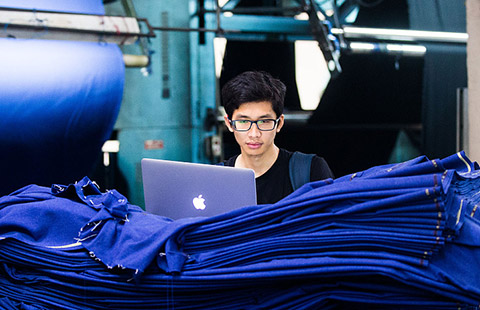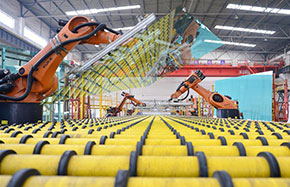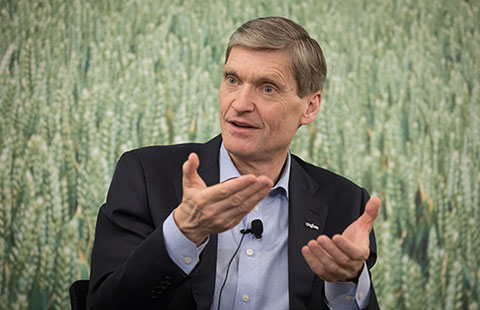US beef producers welcome renewal of exports to China
HOUSTON — Sitting atop his horse on an overcast day, Texas cattle rancher Wayland Kelley surveyed the cows and calves that grazed on a 600-acre field his family leases in south of Houston, the United States.
Sales of cattle have been steady for Kelley and his uncles Rick Kelley and Leonard "Butch" Kelley, who began the family-owned Cow House Cattle Company in 2003 in Hitchcock, Texas.
With the market reopening of US beef exports to China, cattle sales are expected to go from good to better - not only for the Kelley family but for ranchers throughout the United States.
The United States has reached agreements with China on final details of a protocol to allow it to export beef to China, the US Department of Agriculture said on June 12.
In 2003, China shut its market to American beef after a case of bovine spongiform encephalopathy, also known as Mad Cow Disease, was detected in the United States.
In Texas, beef producers say they plan to capitalize on the re-energized market of China.
"The reopening of trade will make it a lot better for the cattle industry as a whole," said Kelley, who raises cattle on leased grazing land in Galveston County. "I feel that it will give us smaller ranchers the opportunity to grow and to produce better beef."
Virtually every sector of the US beef industry -- from the ranchers to the feed lot owners that fatten the cattle for sale, and the slaughterhouses that process the meat -- are praising the news from China.
Craig Uden, president of the National Cattlemen's Beef Association (NCBA), said that U.S. beef is of high quality and meets all standards for consumer safety and consumption.
"Restoring US beef access to China has been a top priority for many years, and we are excited to have the opportunity to provide Chinese consumers with safe, tender, and delicious US beef once again," he said.
The appetite for American beef has skyrocketed in Asia in recent years, with Japan, South Korea, and Hong Kong emerging as three of the world's top five importers of American-produced beef.
"China is the world's fastest-growing beef import market," said Joe Schuele, vice president of communications at the US Meat Export Federation. "It has grown tenfold in last five to six years, so the US industry doesn't want to be on the sidelines while our competitors capitalize on this market."
Until the ban in 2003, the United States was China's largest supplier of imported beef, providing 70 percent of the total intake, according to the Independent Cattlemen's Association (ICA) of Texas. China has 1.4 billion consumers who are potential customers for beef.
The US cattle inventory as of January 1, 2017, was 93.5 million head, according to ICA Texas. Texas led the way with 12.3 million head, followed by Nebraska and Kansas each with 6.4 million head of cattle, according to the association. The economic impact of the Texas cattle industry was $10.5 billion in 2014.
"The opening of the China market is great news for Texas ranchers that produce safe, high-quality beef each and every day," said Jason Bagley, senior manager of beef resources at the Texas Beef Council. "The market is constantly developing and we look forward to having the opportunity to provide Chinese consumers with a great beef eating experience in the future."
The renewal of beef trade is only part of bilateral deal between the United States and China, but it could be translated into positive signs for further deepening cooperation between the two countries.
The reopening of US beef market to China could lead to expanded overall trade between the two nations, said Professor Steven Lewis, China research fellow at the James A Baker III Institute for Public Policy at Rice University in Houston. The trade deal also opens the market for expanded US exports of chicken and natural gas, he said.
"Everybody looks at this as a good for the beef, natural gas and poultry industries, but it's really just like an appetizer," he said.
Meanwhile, some people express that they hope international cooperation in economic area would help improve relations among nations.
Rich Anderson, whose family has raised and sold cattle at the Muleshoe Ranch in Gail, western Texas, for 141 years, said that reopening US-China beef exports will raise demand for Texas beef, a "win-win" for both countries.
"We've got to make friends with everybody" he said. "I feel this (trade deal) will help our relations. Nobody wants to fight. Everybody has got to be fair traders, and fair on each side."



















